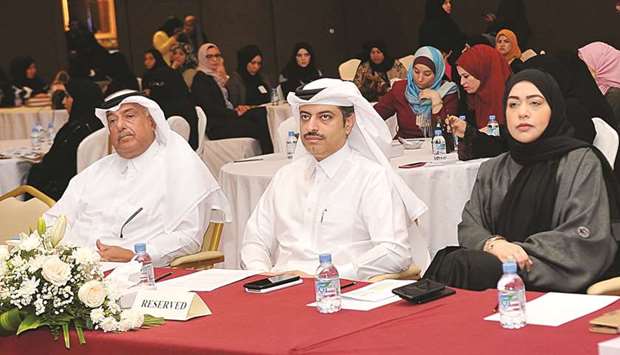The Ministry of Public Health (MoPH) has launched its annual vaccination campaign against Tdap (Tetanus, Diphtheria and Pertussis) focusing on students in Year 10.
The initiative is in co-operation with the Ministry of Education and Higher Education and Primary Health Care Corp (PHCC).
The campaign has begun in private schools, and will continue in public schools.
MoPH organised a workshop for school nurses and healthcare workers for necessary training that would guarantee the success of the campaign.
The campaign aims to vaccinate about 8,000 students.
Last year 64% of the total number of students were vaccinated.
Dr Sheikh Mohamed bin Hamad al-Thani, director of Public Health, MoPH said that Qatar has not recorded any outbreak of tetanus, diphtheria or pertussis in the last seven years, thanks to the effective national vaccination programme which covered a majority of the people.
“However, two cases of diphtheria were reported in 2017 and two pertussis cases in 2016 among those who were not vaccinated against the diseases and who came from abroad. We hope to vaccinate at least 80% of the target number of students this year,” he continued.
Dr Soha al-Bayat, head of Vaccination Unit, Health Protection and Communicable Disease Control Department at the MoPH, said that vaccination is the best proven measure to protect children and adults from infectious and communicable diseases.
“Our aim is to keep Qatar free from these (Tdap ) diseases. The campaign is in its 9th year. Our aim is to sustain a strong national vaccination programme for children and keep them safe from infections. We are having the campaign because every vaccine has its time-bound efficacy. When a child reaches adolescent age, the immune level induced by the vaccine given at childhood becomes weak,” noted al-Bayat.
During the vaccination campaign, doctors and nurses from the MoPH and PHCC will visit schools to vaccinate students.
However, children will be vaccinated only if parents give their consent.
“We have already distributed the consent forms among parents. So if parents reject, we won’t vaccinate the child. The more parents will co-operate, the more we will be able to protect children. If children miss vaccination at schools they can get it from health centres,” added the official.

Dr Sheikh Mohamed bin Hamad al-Thani and Dr Soha al-Bayat at the event. PICTURE: Nasar T K
